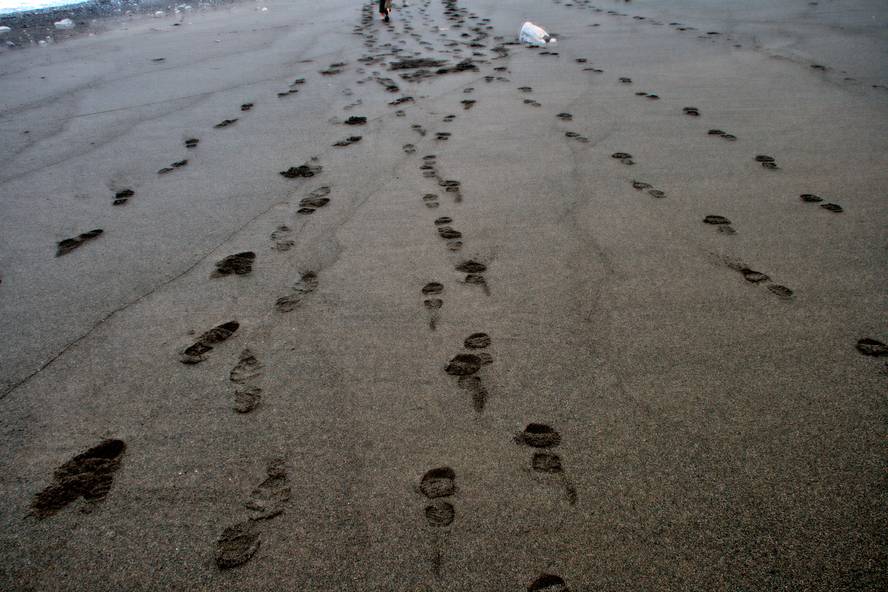Only by footprints, the way to calculate the speed of walkers has been invented
Two researchers from the Alberta University of Madrid and the Canadian University of Complutense have announced in the magazine Ichons a method to calculate the speed of walkers only on foot tracks. They are based on the equation proposed in 1976 by the British zoologist Robert McNeil Alexander. On this occasion, researchers have eliminated the need to know the length of the leg of who runs or walks from the equation.
The research began with a curious curiosity: the researchers wanted to know how precisely one can calculate the speed of a person by attending only to footprints, that is, to the length of footprints. They have made the mistake only 10-15%.
For the study, 14 students of paleontology started running on an Asturian beach, measuring the speed of each and the length of the strides. The data obtained in the first measurement were then compared with the strides and speeds of professional athletes who compete races of 100 and 400 meters. In both cases they used the equation of the British zoologist Alexander. In 1976 Alexander proposed this equation by analyzing the careers of his children. It was possible to verify that the data measured by them were very well adjusted to the equation.
In the case of the students they had the data of the length of the legs, not so in the case of professional athletes. Therefore, Alexander's equation was modified and a version was created that did not contemplate this variable. Although the equation obtained reached a maximum error of 15%, researchers have recognized that it has limits. For example, in the case of professional athletes, they have seen that sometimes the strides of 100 meters and 400 meters runners are the same and that the speeds are very different.






